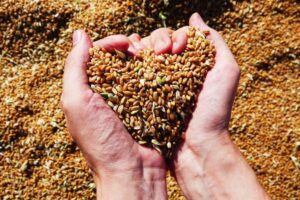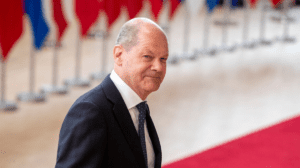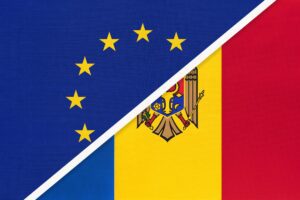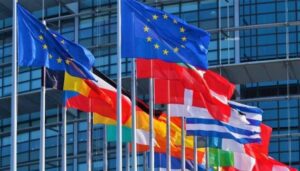
The Ministry of Digital Transformation of Ukraine announced the extension of the “Roaming like at home” service for Ukrainian refugees in the EU countries.
“The joint statement of the mobile operators of Ukraine and the European Union is being extended. Ukrainians who are forced to leave for the EU countries will be able to continue calling their relatives at the prices of Ukrainian operators. The preliminary agreements were for three months. And from July, Ukrainians would have to switch to European tariffs. However, the European Commission called EU operators to extend support for Ukrainians,” the Ministry’s Telegram channel reported.
According to the Ministry of Digital Development, currently about 70 European operators provide Ukrainians with free roaming. From the Ukrainian side, the statement is supported by mobile operators Kyivstar, Vodafone Ukraine and lifecell.
The Ministry thanked the National Commission for State Regulation in the Fields of Electronic Communications, Radio Frequency Spectrum and Postal Services (NCEC), the European Commission and the Association of European Regulators in the Field of Electronic Communications (BEREC) for the efforts made to ensure that Ukrainians in the EU stay in touch with loved ones.
As reported earlier, the operators of Ukraine and the EU signed a joint declaration on coordinated efforts to ensure and stabilize affordable or free roaming and international calls between the EU and Ukraine.
At the time of publication, the declaration has been signed by 27 telecom operators in the EU and Ukraine, including several pan-European groups, as well as an association representing a number of virtual mobile operators (MVNOs in Europe), and is open to further signatories.

Federal Minister of Foreign Affairs of Germany Annalena Berbock said that she supports the proposal of the European Commission to appoint a central coordinator represented by the EU, who will buy grain in Ukraine and rationally distribute its exports through existing logistics channels.
She made the corresponding statement on July 18 after visiting the Romanian port of Constanta, which transships significant volumes of agricultural raw materials from Ukraine under the blockade of Ukrainian seaports, according to the Spiegel website.
“We should think about whether to buy up all (Ukrainian – IF-U) grain, so that later we can distribute it logistically much faster,” the German minister was quoted as saying.
Burbock recalled that due to the Russian blockade of Ukrainian ports, Ukraine has accumulated 18 million tons of agricultural products ready for export. After four-party talks between Ukraine, the OO, Turkey and the Russian Federation, there is hope for the deblockade of Ukrainian export infrastructure in the Black Sea, but it is still important to look for alternative grain routes, for example, through Constanta.
As reported, on June 28, the Cabinet of Ministers of Ukraine approved a draft agreement with the UN World Food Program (WFP) on the resumption of its office in the country, which will allow the organization, among other things, to purchase agricultural products from Ukrainian companies to carry out international humanitarian programs.
WFP is expected to participate in the purchase of agricultural and food products from Ukrainian companies for the needs of UN international humanitarian projects.
People’s Deputy Dmitry Solomchuk wrote in June that the uncertainty with the export of Ukrainian grain, leading to a global food crisis and rising food prices, can be resolved by buying last year’s and this year’s crops from Ukraine for a total of $30-35 billion through a specially created fund. This will contribute to the development of exports from the country and its internal processing in the agro-industrial complex, as well as provide the Ukrainian agricultural sector with working capital and the opportunity to continue working in the conditions of the military invasion of the Russian Federation.

German Chancellor Olaf Scholz, in an article written for the Frankfurter Allgemeine newspaper, said that Europe knew from the beginning that sanctions against Russia would be in place for a long time.
“It was clear to us from the very beginning that the sanctions would have to be maintained for a long time,” the politician wrote.
He repeated his statement, made in May in an interview with the ZDF television channel, that the West would not agree to the lifting of sanctions in the event of a peaceful settlement of the Ukrainian conflict on “conditions imposed by Russia.”
At the same time, he acknowledged that most Germans are suffering from the consequences of the restrictions, including the high cost of gasoline and food.
“This path is not easy even for such a strong, prosperous country as ours,” Scholz added.
The article states that “the world economy is facing a challenge that has not been seen for decades,” and no country in the world can stand alone against such a development.
In this regard, Scholz called for the unity of the EU countries in policy towards Russia, noting that the EU has already demonstrated it.
“But we must not rest on our laurels,” he explained, adding that the EU must come to an agreement in other areas.
“For me, this means: no more selfish blockades of European decisions by individual member states. No more national single efforts that harm Europe as a whole,” he stressed.
In his words, “we simply can no longer afford a national veto, for example, in foreign policy, if we want to continue to be heard in a world of competing great powers.”
As reported, the EU Foreign Affairs Council will be held on Monday in Brussels. He plans to work in connection with the Ukrainian situation in three areas: support for Ukraine, sanctions against the Russian Federation, informing the international community about the consequences of the conflict, a source in the EU said.
“On the first part, we believe that there will be a discussion of additional military support for Ukraine,” a senior EU official told reporters on condition of anonymity, briefing them on the agenda of the ministerial meeting on Friday.
“There will be a discussion on sanctions (against the Russian Federation). We are preparing a number of measures,” the media interlocutor continued. He confirmed that during the discussion, council members will discuss a proposal to ban Russian exports of gold.
At the same time, the official noted that “we do not expect any decision on sanctions on Monday.”
With regard to military assistance to Kyiv, Brussels expects from the EU Council a “political decision” of the member states on the fifth tranche in accordance with the instructions of the European Council.

A large Ukrainian manufacturer of feed for cats and dogs, Kormotech LLC (Prylbychi village, Lviv region), has accumulated stocks of finished products in Poland for four weeks of work, and also signed contracts for feed production in the EU in case its factories stop in Ukraine.
Such measures allow the company to guarantee the continuity of product supplies to European partners in the context of the war in Ukraine, its CEO Rostyslav Vovk said at the Forbes online conference Building Together on Friday.
According to the head, Kormotech opened a logistics center in Poland, where it keeps a stock of products corresponding to four weeks of operation of the company’s two factories located in the western regions of Ukraine – the production time and delivery to a European buyer under normal conditions. This allows “covering” orders from the EU with finished products for a month, while the company solves possible problems with production or logistics.
Vovk also emphasized that his company can guarantee the supply of dry pet food to Europeans from its factories in Ukraine even if production in the country stops due to factors caused by the Russian invasion. To do this, at the beginning of the war, Kormotech signed an agreement with its European partners for production of feed under the Kormotech brand at third-party enterprises in the EU.
“We gave our partners two options: we will work in Ukraine until the very end. As long as we can produce feed in Ukraine, we will produce it. If we have any difficulties or problems, you will receive a similar product from our European partners next month” Vovk said.
He clarified that doing business in Europe usually does not bring super profits, but it also allows for stable development over a long period.
“If you are planning to develop your business in Europe, you need to be clear that this is a long-term business – it can take months or years to sign a contract, and there are no super profits if you do not have a unique or monopoly product. On the other hand, you have a guarantee for many years that you will gradually grow and be able to plan your business processes,” the CEO of Kormotech said.
Kormotech LLC is a leading Ukrainian manufacturer of feed for cats and dogs. The company exports products to 32 countries, including the USA, UK, Germany, France, Finland, Sweden, the Netherlands, Spain, Italy, Poland, Turkey, Iran and Chile.

The European Parliament on Tuesday voted to liberalize Moldova’s agricultural exports to the European Union, MEP Siegfried Muresan, who co-chairs the committee for cooperation with Moldova, said.
Under the EP resolution, export quotas will be doubled for a year for seven goods to which tariff quotas still apply. They include tomatoes, garlic, table grapes, apples, cherries, plums, and grape juice. Moldova used to export plums and grapes in large quantities to Ukraine, Belarus and Russia.
The decision was made because the situation in Ukraine “has strongly affected Moldovan farmers, who are no longer able to export their goods to the East,” Muresan said.
The EU is already Moldova’s biggest trading partner, accounting for almost two-thirds of total exports, he said.

The first tranche of EUR1 billion of the new EUR9 billion macro-financial assistance program for Ukraine will be received at the end of July, Executive Vice President of the European Commission Valdis Dombrovskis said.
“In July … by the end of the month,” he told Interfax-Ukraine on the sidelines of the international Ukraine Recovery Conference in Lugano on Monday.
Dombrovskis found it difficult to estimate when and in what volumes the next tranches will be received, noting that work is underway on this issue.
As reported, in June the government managed to significantly increase official external financing, which exceeded $4 billion compared to $1.5 billion in May, with an estimated deficit of $5 billion. According to Finance Minister Serhiy Marchenko, in July the government expects to maintain the same significant volumes of external financing, as in June. In particular, in July, the second tranche for approximately $1.3 billion of a grant from the United States is expected to be received.